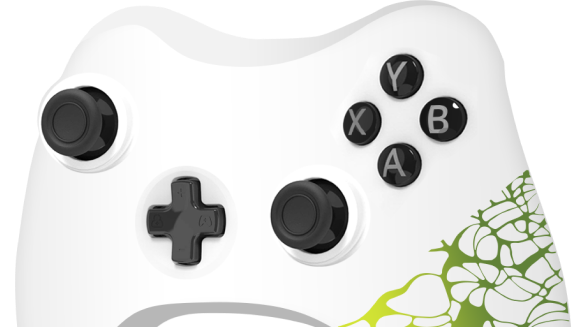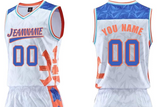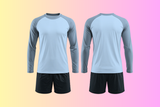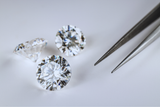As personalization continues to redefine modern luxury, 2025 is shaping up to be the year where jewelry, watches, and home décor truly embrace individuality. Consumers no longer seek mass-produced designs — they want items that express who they are, where they’ve been, and what they stand for. In this in-depth guide, we’ll explore three major customization trends transforming these industries: hyper-personalization, modular and adaptive design, and sustainable and ethical materials. Each reflects how craftsmanship, technology, and values are converging to create a new era of bespoke living.
1. Hyper-Personalization — Designing for Story, Identity & Emotion
In 2025, personalization is evolving beyond simple engravings or initials. Customers want products that tell a story — one that’s deeply personal and emotionally resonant. Jewelry, watches, and décor are no longer just accessories; they’ve become reflections of life’s moments, milestones, and memories.
Jewelry & Watches
Jewelry brands are moving toward deeply symbolic designs. Think necklaces engraved with geographical coordinates, rings etched with handwriting, or bracelets that capture a child’s first sketch. Watches are following suit, offering customizable dials, case backs, and straps to represent individuality. According to recent trend analyses, buyers now prefer designs that embody their identity over conventional luxury branding.
What’s fueling this shift? The desire for emotional connection. Modern consumers associate value with meaning rather than status. Custom jewelry and watches allow people to carry their memories — literally — on their wrists or around their necks.
Home Décor
Hyper-personalization is just as evident in home design. Interiors are evolving into storytelling spaces. Homeowners curate surroundings that showcase personal milestones, travels, and values. Gallery walls made from meaningful art, mixed textures, or furniture built around cherished objects all reflect an urge for self-expression.
Designers predict that in 2025, homes will move away from minimalism toward “personal maximalism” — interiors filled with authentic stories, color, and sentimentality. This isn’t clutter; it’s narrative living.
Why It Matters
Personalized design boosts both emotional and economic value. Studies show consumers are willing to pay premiums for unique, custom experiences. For businesses, offering personalization options strengthens brand loyalty and sets them apart in a saturated market. The emotional resonance also drives social sharing, creating organic promotion and word-of-mouth visibility.
Implementation Insights
To embrace hyper-personalization:
- Offer easy-to-use online customizers for jewelry and watches that let customers design in real time.
- In home décor, create modular templates or bespoke consultation options for tailored furniture and spaces.
- Highlight the story behind each customized piece to reinforce emotional value.
2. Modular & Adaptive Design — Flexibility for a Dynamic Lifestyle
Consumers today want versatility. In 2025, design isn’t static; it adapts. Modular and adaptive designs are gaining traction across jewelry, watches, and interiors — offering the freedom to change, upgrade, or reconfigure items as life evolves.
Jewelry & Watches
Customization is moving toward multi-functionality. Jewelry pieces now come with detachable charms, interchangeable gemstones, and convertible mechanisms. A pendant that transforms into a brooch or stackable rings that reconfigure into different patterns are defining luxury flexibility. Watch brands are innovating with swappable bezels, interchangeable straps, and bold case shapes that let wearers shift aesthetics effortlessly.
This modularity extends product longevity. Instead of replacing an entire item, users simply modify or update components — creating a sustainable and future-proof ownership experience.
Home Décor
In home interiors, adaptability is key. As living spaces double as workspaces and leisure zones, modular décor helps maintain functionality without compromising beauty. Expect to see reconfigurable furniture, expandable shelving, and multifunctional designs. From smart lighting that adjusts to mood to transformable sofas that shift into beds, modularity defines convenience and creativity.
Why It Matters
Consumers crave flexibility to match fast-changing lifestyles. Modular design supports sustainability, as individuals reuse and adapt items instead of replacing them. This concept aligns with the growing trend of mindful consumption — buying fewer, better, and more enduring pieces.
Implementation Insights
To capitalize on modular design trends:
- Introduce upgradable components for jewelry and watches — new straps, charms, or metal finishes.
- Develop adaptable furniture and accessories with interchangeable materials or color schemes.
- Offer modular collections that grow with customer needs, increasing brand lifetime value.
3. Sustainable & Ethical Material Choices — Values Meet Craftsmanship
In 2025, the personalization trend expands beyond aesthetics — it’s about aligning with personal ethics. Sustainability and transparency are now at the heart of customization across luxury categories. Consumers want to know not only who made their product but how and from what materials.
Jewelry & Watches
The jewelry industry is embracing recycled metals, lab-grown diamonds, and ethically sourced gemstones. Designers highlight transparency by tracing origin stories and production methods. Similarly, watchmakers are innovating with responsibly sourced materials and recyclable components while maintaining elegance and precision craftsmanship.
Customization enhances ethical consumption: buyers can choose materials that align with their beliefs, combining emotional and moral satisfaction in a single product.
Home Décor
Sustainability dominates décor choices. Expect furniture crafted from reclaimed wood, upcycled metal, and renewable fabrics such as bamboo, hemp, and organic cotton. “Intentional design” — a term coined for designing with longevity and purpose — is a defining theme for 2025 interiors. Even home accessories now come with environmental stories, allowing consumers to decorate consciously without compromising style.
Why It Matters
Modern consumers equate luxury with responsibility. Sustainable customization adds authenticity, transparency, and deeper emotional connection to every purchase. Businesses that integrate eco-conscious choices gain customer trust and future-proof their brands against shifting market values.
Implementation Insights
To embed sustainability in customization:
- Provide traceable sourcing information for all materials.
- Offer lab-grown or recycled options and clearly label them in online configurators.
- Collaborate with artisans and local manufacturers to reduce waste and support ethical labor practices.
Bringing It All Together — The Future of Customization
Customization in 2025 is more than a trend; it’s a lifestyle movement. Hyper-personalization captures individuality, modular design fuels adaptability, and sustainability ensures conscience-driven craftsmanship. Together, these trends redefine luxury as something meaningful, evolving, and ethical.
Key Drivers of the Customization Era
- Consumer Empowerment: Shoppers now expect to co-create and influence design directly.
- Technological Advancement: AR try-ons, 3D design tools, and virtual configurators make personalization seamless.
- Emotional Value: Customized products form lasting emotional bonds between brands and consumers.
- Sustainability: Responsible materials and ethical transparency drive purchasing decisions.
For businesses, embracing customization is no longer optional — it’s strategic. Offering personalization options enhances engagement, increases conversion rates, and builds a loyal customer base. For consumers, it means owning items that are not just possessions but extensions of their identity and values.
Conclusion
Jewelry, watches, and home décor are entering a golden age of customization. The fusion of personal expression, adaptability, and sustainability is redefining the essence of modern luxury. As technology empowers creativity and ethics shape choices, the future belongs to designs that are uniquely, authentically yours. Whether you’re a brand, designer, or consumer — 2025 is the year to make your mark with customization that tells a story worth keeping forever.




